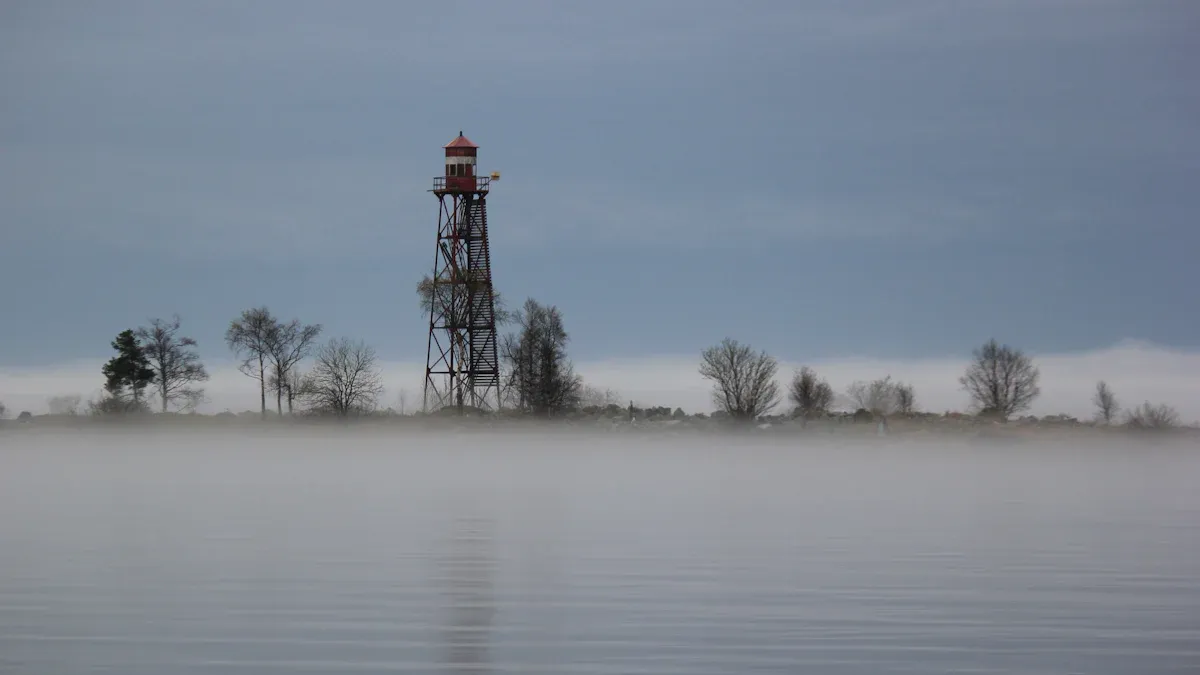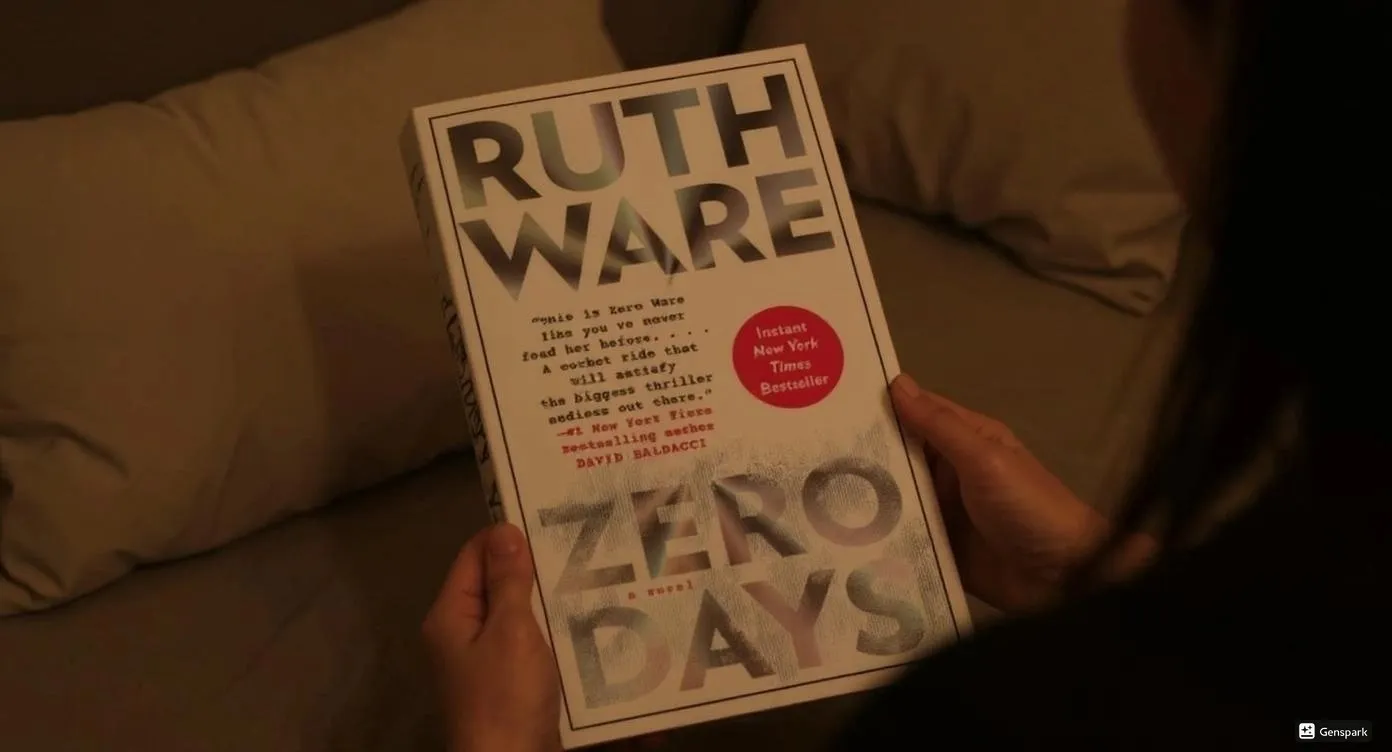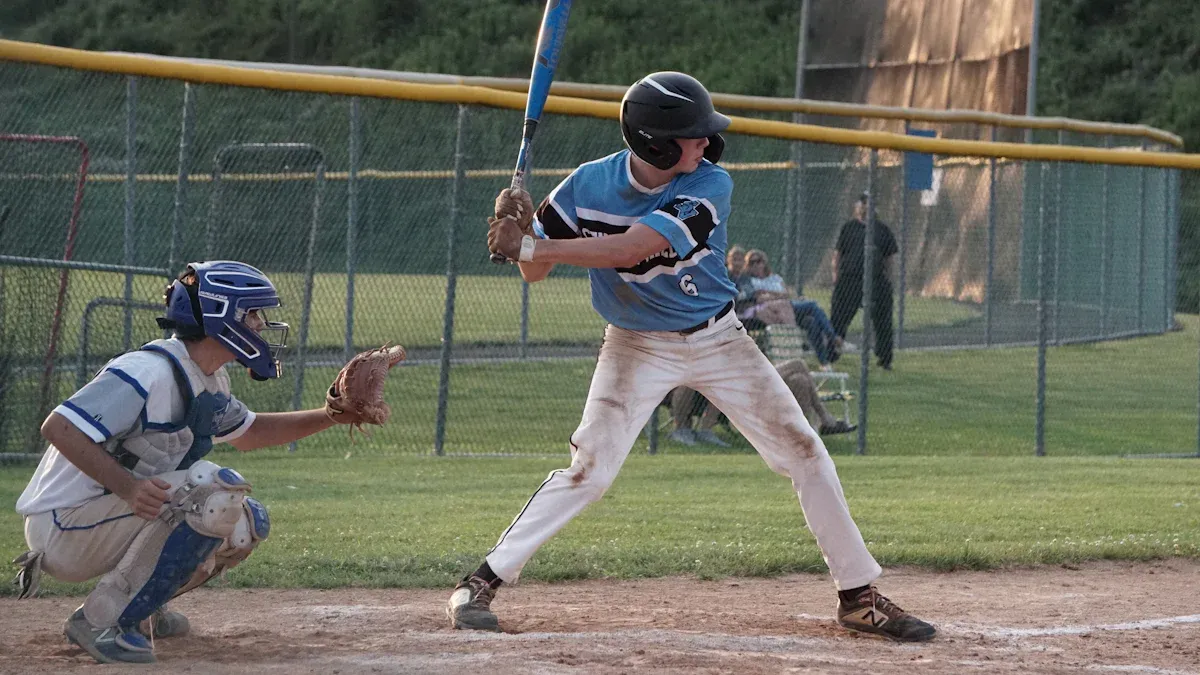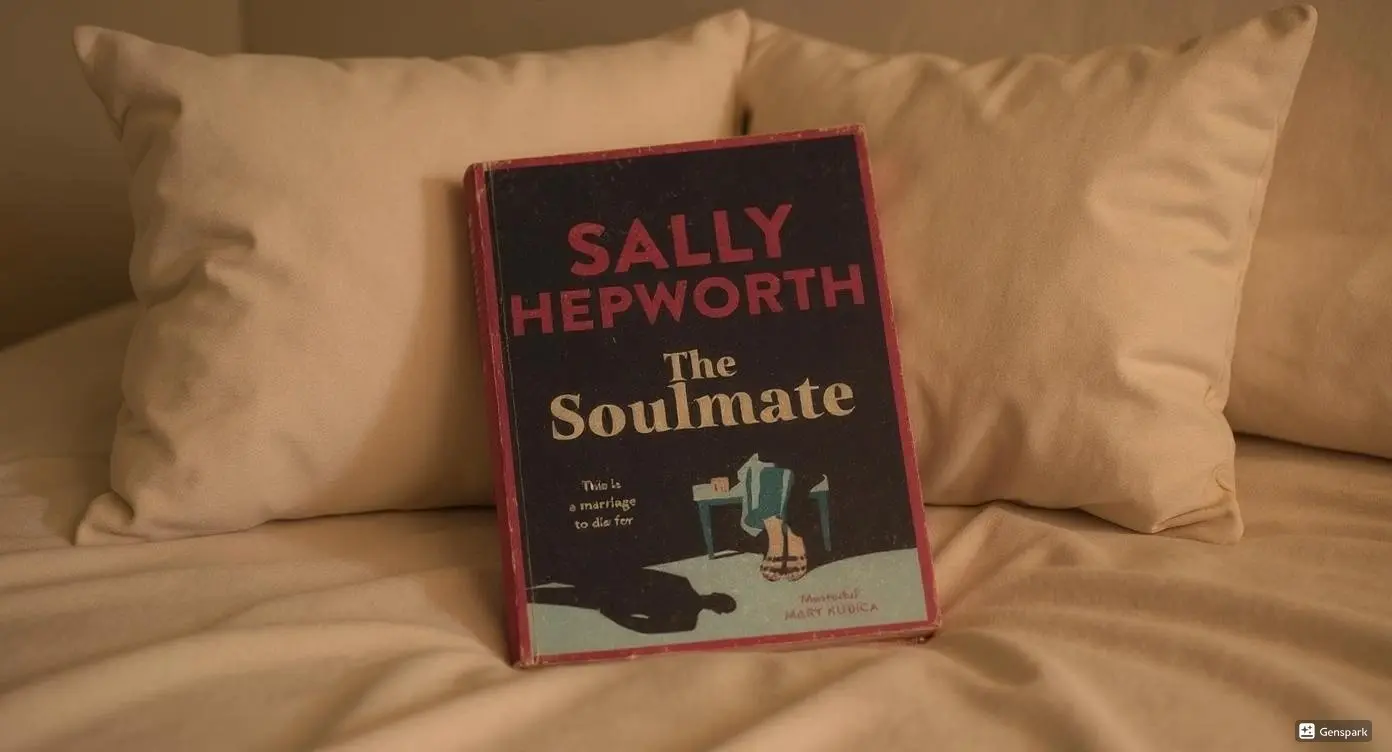This suspense book has a spooky feeling and cool twists like Hitchcock. Thrillers are very popular right now, and I think this one should be on your reading list.
Key Takeaways
The lake is spooky and the characters feel real. These things make readers want to keep reading.
The story gets slow in the middle sometimes.
Some twists are easy to guess. But the feelings in the story make it good to read. People who like thrillers will enjoy this book.
If you like mysteries and stories with strong feelings, you will like it. The setting also makes the book a good pick.
Overview

Plot Summary
I dove into It Happened on the Lake by Lisa Jackson expecting a typical thriller, but the setup pulled me in right away. The story centers on Harper, who returns to her hometown in Oregon after years away.
She carries the weight of a tragedy from her past, and the lake itself seems to hold secrets that refuse to stay buried. The book wastes no time building tension. I felt the suspense in every chapter, like something was always lurking just out of sight.
Harper’s return isn’t just about facing old memories. The atmosphere feels thick with regret and suspicion.
The lake setting adds a chilling layer. I kept picturing the fog rolling over the water, hiding things I didn’t want to see.
The plot moves between Harper’s present and the shadows of her past, making me question what really happened all those years ago.
I noticed the book fits right into the current wave of thrillers and suspense novels. The genre is booming, with the thriller film market alone valued at over $2 billion in 2023 and still growing. People crave stories that keep them guessing and on edge. It Happened on the Lake by Lisa Jackson taps into that demand with its blend of mystery, crime fiction, and emotional drama.
If you’re curious about how readers respond, I’ve seen a mix of reactions. Some readers love the slow-burn tension, while others want more action. Visual data methods like radar plots and sunray plots can show overall patterns in reader ratings, but I’ll be honest, I prefer just listening to what people say: “Couldn’t put it down,” “kept me up at night,” or “the ending surprised me.” That’s the kind of feedback that matters most to me.
Main Themes
The book explores some heavy themes, but it never feels overwhelming. Here’s what stood out to me:
Facing the Past: Harper’s journey is all about confronting what she tried to leave behind. The story asks if we can ever really escape our mistakes.
Secrets and Lies: Every character seems to hide something. The tension comes from not knowing who to trust.
Grief and Forgiveness: The emotional core of the book deals with loss and the struggle to forgive—both others and ourselves.
Thematic analysis in literature often looks for recurring motifs, and this book has plenty. Patterns like regret, redemption, and the search for truth show up again and again. Researchers use methods like coding and grouping to spot these themes, but as a reader, I just felt them in every interaction and twist.
The process of refining themes in a story is a lot like how I read: I look for what keeps coming back, what feels important, and what makes me pause.
I have to give props to Lisa Jackson for weaving these motifs throughout the plot without making it feel forced.
To be fair, not every theme lands perfectly. Sometimes the emotional beats feel a bit familiar if you read a lot of thrillers.
Setting

Lake Twilight
I have to admit, the lake in this story almost feels alive. Lake Twilight isn’t just a backdrop—it’s a character with its own secrets. When I read about Harper standing by the water, I could almost hear the soft splash of waves and feel the chill in the air. The fog rolls in, and suddenly, everything looks different. I found myself holding my breath, waiting for something to appear out of the mist.
The lake’s surface hides more than just fish. Every time Harper walks near it, I get this sense that the past is about to break through.
At night, the water reflects the moonlight in a way that makes everything seem a little more dangerous.
I love how the author uses the lake to build suspense. It’s not just a pretty place—it’s a place where anything can happen.
Tip: If you like stories where the setting feels spooky and unpredictable, you’ll probably enjoy this one.
Oregon Atmosphere
Oregon brings its own mood to the book. I’ve never been to Oregon, but after reading this, I feel like I have. The weather changes fast. Sometimes it’s raining, sometimes it’s just gray and damp. That adds to the tension. The characters never seem fully comfortable, and neither did I.
Here’s a quick look at what makes Oregon’s atmosphere unique:
Aspect | Details |
|---|---|
Regional Climate Variation | Western Oregon stays mild and wet, thanks to the Pacific Ocean. Eastern Oregon is drier. |
Temperature Trends | Temperatures have gone up about 2.5°F since the early 1900s. |
Precipitation Variability | Some areas get over 100 inches of rain a year, others less than 10. |
Extreme Weather | Oregon rarely gets big thunderstorms, but wildfires are becoming more common. |
I noticed the rain and fog in almost every chapter. The weather shapes the mood and keeps the suspense high. To be fair, the setting sometimes felt a bit repetitive, but it definitely made me want to grab a blanket and keep reading.
Strengths
Suspense
I have to admit, this book kept me on edge. I found myself checking the clock and realizing hours had passed. The suspense works because the story always hints that something big is about to happen. I noticed the tension builds with every chapter. The author uses short scenes and cliffhangers that made me want to read just one more page.
The plot twists surprised me more than once.
The setting adds to the suspense, making even quiet moments feel dangerous.
I saw how the book uses classic thriller tricks, but with a fresh spin.
Character Depth
The characters felt real to me. Harper, especially, has layers. I could see her struggle with regret and hope. I think the author lets readers fill in some gaps, which made me connect more with the story.
My own experiences shaped how I saw Harper’s choices.
I noticed that different readers might see the characters in new ways, depending on their backgrounds.
The book invites you to think about what’s not said, not just what’s on the page.
Weaknesses
Pacing
I have to admit, the pacing sometimes threw me off. I found myself racing through some chapters, then suddenly hitting a slow patch that made me want to check my phone. The story starts strong, but the middle drags in places. I noticed the tension dips just when I wanted things to heat up.
Some scenes move fast, then others slow down too much.
The suspense builds, but then stalls with extra details or flashbacks.
I felt like I was on a rollercoaster that stopped for a snack break.
Reader feedback often splits on pacing. Some people want a steady build, while others crave nonstop action. In studies about pacing, even adults struggle to keep things even—novices often start strong, then lose momentum, just like I did with this book. When the story doesn’t balance action and rest, it can leave readers feeling restless or unsatisfied.
Predictability
I love a good twist, but I saw a few of these coming. The book tries to keep you guessing, but if you read a lot of thrillers, you might spot the clues early. I found myself predicting the next move more than once.
The plot uses familiar patterns, so some surprises feel less shocking.
The story hints at big reveals, but sometimes the payoff is exactly what I expected.
I noticed the book leans on classic prediction methods—like setting up obvious suspects or using red herrings.
In other fields, experts use things like regression and classification to predict outcomes. Here, I felt like I could run my own mental prediction model and get the right answer before the characters did. That took away some of the jaw-dropping moments I hoped for.
Notable Elements
Hitchcockian Twists
I love when a book surprises me. This one gave me that classic Hitchcock feeling—never quite sure who to trust or what would happen next. The author plays with expectations, just like Hitchcock did in his movies. I found myself second-guessing every character’s motive. Sometimes, I even felt a little tricked, but in a good way.
“Hitchcock plays with the audience, twisting the knife into them about expectations, emotional investment, and denouements. His twists are more than surprises; they are deeply integrated with fully fleshed out characters, making the narrative experimental, cruel, and wildly effective.”
I noticed the story uses visual clues and small details to guide my attention, much like Hitchcock’s camera work in Vertigo. I felt like an active participant, always searching for the next hint. The plot stays tight, with every twist connected to the characters’ choices. That made the suspense feel real, not just random.
The twists don’t just shock—they make sense for the story.
I kept thinking about other thrillers that try to copy Hitchcock but miss the mark. This one gets closer than most.
Emotional Impact
This book hit me harder than I expected. I felt Harper’s fear and regret in my chest. Some scenes made me pause and take a breath. I even caught myself tearing up once or twice. The emotional moments sneak up on you, tucked between the suspense and the secrets.
I related to Harper’s struggle with forgiveness.
The story made me think about my own past mistakes.
I finished the book feeling a little raw, but also hopeful.
If you want a thriller that makes you feel something, not just guess the ending, this one delivers.
Comparison
Lisa Jackson’s Other Books
I’ve read a handful of Lisa Jackson’s books, and I always notice some familiar vibes. She loves to mix mystery, real-world settings, and a touch of romance or even paranormal fantasy. Books like Haylee and Something Wicked come to mind.
They share that same feeling of secrets hiding just beneath the surface. The settings change a bit—her Colony series takes place in Oregon, while Haylee happens near San Francisco in the Sacramento Valley. I like how she keeps her writing style consistent. It feels comfortable, almost like coming back to an old favorite sweater.
You’ll find similar themes: regret, secrets, and the struggle to move on.
Her books often have a strong sense of place, whether it’s a foggy lake or a bustling city.
I can’t compare sales numbers or publication history because that info isn’t out there, but I can say the reading experience feels just as enjoyable across her stories.
Similar Authors
When I think about other writers who give me the same chills, a few names pop up. Authors like Karin Slaughter, Lisa Gardner, and Mary Higgins Clark all write suspenseful stories with strong emotional hooks. They know how to keep readers guessing and create characters you care about.
These authors have solid reputations and big fan bases. Their books show up on bestseller lists and get lots of buzz.
Publishers and book sites use things like Net Promoter Scores and market share to see how popular these writers are. I just go by how many times I see their names in book clubs or on social media.
Some sites track things like newsletter subscribers and website visitors to measure reach. That tells me these authors connect with a lot of readers, not just in the U.S. but around the world.
If you want more suspenseful reads, check out these authors. Their books deliver the same pulse-pounding tension and emotional depth.
Who Should Read “It Happened on the Lake”
Ideal Readers
If you love suspense, thrillers, or crime fiction, this book should land on your radar. I found myself drawn in by the secrets and the moody lake setting. Here’s who I think will get the most out of this book:
Fans of standalone thrillers who want a complete story in one book.
Readers who enjoy guessing twists and piecing together clues.
Anyone who likes stories with emotional depth and characters facing their past.
People who appreciate a chilling, atmospheric setting—especially if you like foggy lakes and small towns.
I noticed that women tend to read more fiction, especially in the mystery and suspense genres. Millennials and Baby Boomers both enjoy these stories, but younger readers often dive in more. If you like to talk about books online or share recommendations, you’ll fit right in—almost half of readers post reviews or chat about their latest reads. Mystery is the top adult fiction genre, so you’re not alone if you reach for these kinds of books.
Tip: This book works well for both new readers and longtime Lisa Jackson fans. You don’t need to read any other books first.
Attribute | Who Might Love This Book |
|---|---|
Age | Millennials, Gen X, Baby Boomers |
Gender | Women (but men enjoy it too!) |
Genre Preference | Mystery, suspense, crime fiction fans |
Reading Format | Print, ebook, or audiobook |
I would rate It Happened on the Lake by Lisa Jackson a 7 out of 10. The suspense kept me interested. The story has a lot of feelings too. Some twists were easy to guess, but I still liked reading it. Here’s what I think:
The setting feels spooky and the characters seem real
Sometimes the story moves too slowly
This book is best for people who like thrillers with deep characters
Sip The Unknown—Discover Stories You Never Knew You’d Love!
Dionysus Reviews Has A Book For Every Mood
Biography & Memoir
Fiction
Mystery & Detective
Nonfiction
Philosophy
Psychology
Romance
Science Fiction & Fantasy
Teens & Young Adult
Thriller & Suspense
Frequently Asked Questions
Is “It Happened on the Lake” a standalone novel?
Yes, you can jump right in. You don’t need to read any other Lisa Jackson books first. The story wraps up in one book.
Does the book have graphic or disturbing scenes?
No, I didn’t find anything too graphic or over-the-top. The suspense comes from secrets and atmosphere, not from shocking violence.
Would I recommend this book for book clubs?
Absolutely! The secrets, twists, and emotional moments spark great discussions. My group had a lot to say about Harper’s choices and the lake’s mysteries.









